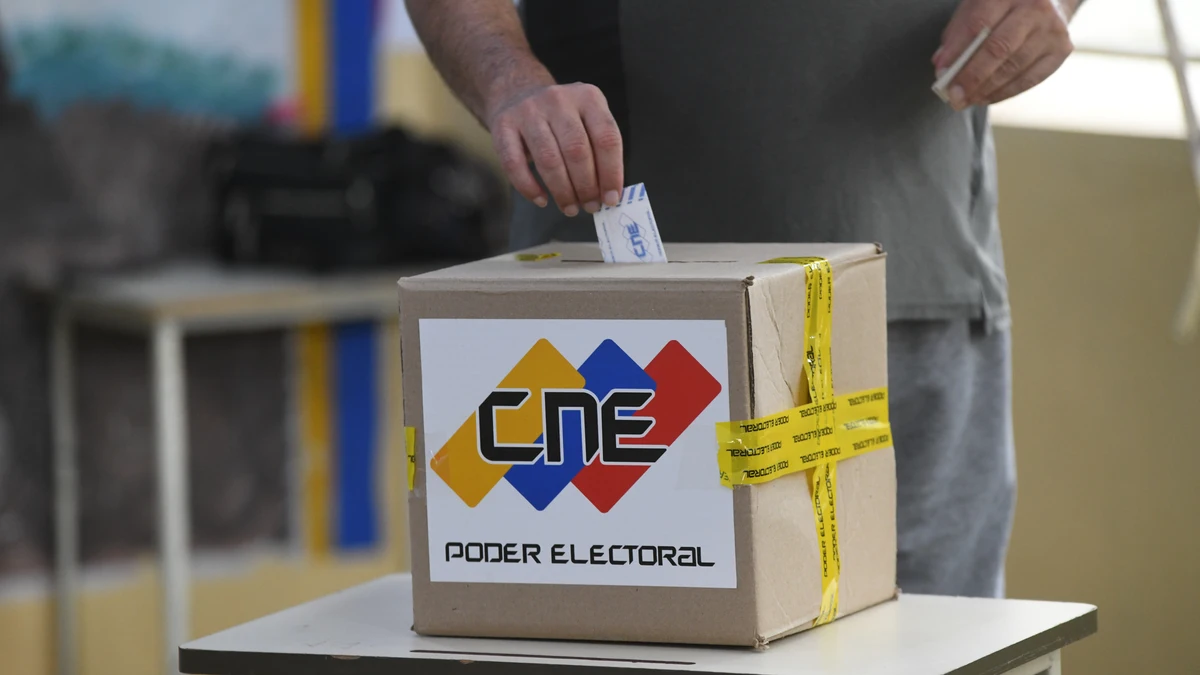
He Carter Centerwho has participated as an observer in the Venezuelan electionssaid Tuesday that the process “did not conform” to international parameters and standards of electoral integrity, and therefore “cannot be considered democratic.” The Carter Center cannot verify or corroborate the authenticity of the results of the presidential election declared by the National Electoral Council (CNE) of Venezuela,” it said in a statement.
The organization highlights that the electoral body, which has declared the official candidate the winner Nicolas Maduro With more than two million votes still to be counted, he has not announced the Results broken down table by tablewhich “constitutes a serious violation of electoral principles.” It also stresses that the electoral process “has not met international standards of integrity at any of its relevant stages and has infringed numerous provisions of national legislation.”
According to the Carter Center, founded by former US President Jimmy Carter and former first lady Rosalynn Carter, “it developed in an atmosphere of restricted freedoms to the detriment of political actors, civil society organizations and the media” and denounces that during the process CNE authorities “showed bias in favor of the ruling party” and against opposition candidates.”
He adds that the update of the voter registration “It was carried out with numerous inconveniences,” such as “very short deadlines, relatively few registration places and a minimal public information and dissemination campaign.” The problem – the note continues – “was aggravated abroad, where citizens faced excessive legal barrierseven arbitrary ones, to register abroad.”
In addition, he assures, the registration of parties and candidates “It also failed to meet international standards” and, in recent years, opposition parties “have suffered judicial interventions to the detriment of their most socially and politically recognized leaders in order to benefit people close to the Government, influencing the formation of their candidates.”
The organization also recalls, “even more importantly”, that the registration of the candidacy of the main opposition forces “was found subject to discretion of the electoral authorities who made decisions without respecting basic legal principles.”
The Carter Center also highlights that the campaign was developed “with a remarkable imbalance in favour of the Government in all fields. The official candidate, he says, had very ample resources, which resulted in the “great disproportion of rallies, murals, billboards and posters in its favor.” He also notes a “abuse of public resources“, including the use of vehicles, the mobilization of officials for the campaign and the use of social programs.
The official candidacy, he explains, “had predominance” on television and radio in advertising, transmission of events and information and the authorities “tried to restrict” opposition campaigns“including the persecution and intimidation of people who provided services to anti-Chavez politicians “to create a deterrent effect.”
Despite everything, the note reads, Venezuelan citizens mobilized massively and peacefully last Sunday to express their preferences and the voting day “took place in a civil manner, despite restrictions on access to the premises for national observers” and “party witnesses.”
The organization also criticizes the “pressure on the electorate” with “government party control points near the polling stations to verify voter turnout.” The Carter Center observers “verified the willingness of Venezuelan citizens to participate in a democratic electoral process and demonstrated their civic commitment as polling station members, party witnesses and observers.”
“These efforts were undermined by the lack of transparency of the CNE in the dissemination of the results,” denounces the organization, which recalls that the mission was invited to observe the 2024 presidential election and signed a memorandum of understanding to ensure that the mission could freely observe according to its standards.
The Carter Center deployed 17 experts and observers The mission began on June 29 with teams in Caracas, Barinas, Maracaibo and Valencia, where they met with “a wide range of actors, including the CNE, candidates, political parties and civil society organizations,” among others. It concludes by noting that a final report of its observation mission in Venezuela will be published, detailing all the findings outlined in the statement.
Source: Lasexta
Ricardo is a renowned author and journalist, known for his exceptional writing on top-news stories. He currently works as a writer at the 247 News Agency, where he is known for his ability to deliver breaking news and insightful analysis on the most pressing issues of the day.












